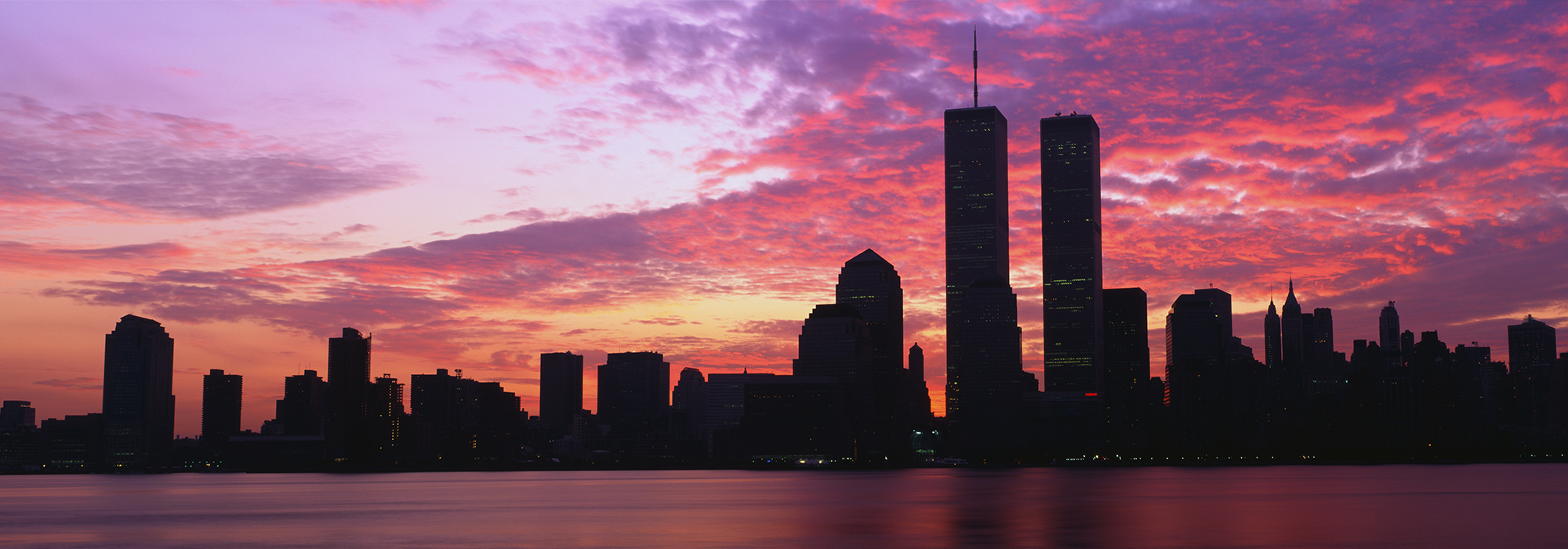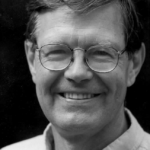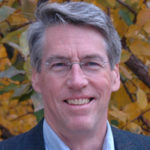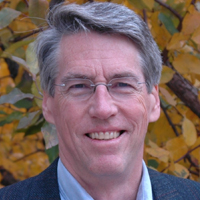
William Watson: How did you hear about the attacks? What was your initial reaction and when did you start thinking about economics?
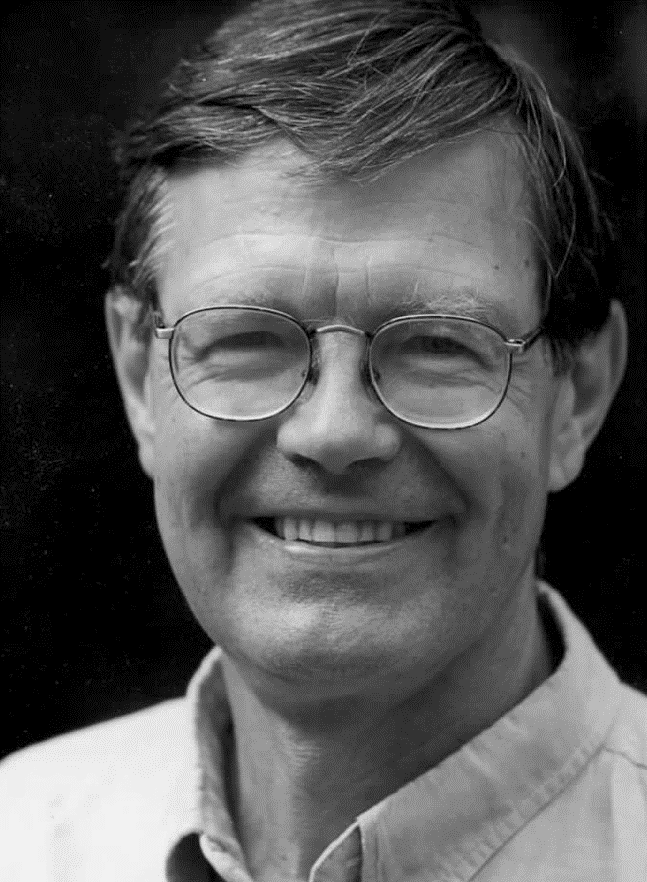
John Helliwell: I turned on the CBC radio news, about 7 a.m., or a little before, while rising. And the attacks were in progress. I’ve been thinking about them ever since, in some sense. All of this is related to so much of the work I’ve been doing on international relations generally and social capital, economic linkages and interdependence. It’s not the kind of test case you’d want to run, but it’s obviously important to respond appropriately.
William Watson: What was your first reaction? As an economist, I immediately thought of the border.
John Helliwell: Going back to the part that transportation played in my past, I thought first that air travel would not be the same again.
William Watson: How seriously do you think it will be changed?
John Helliwell: It may end up being as easy to use, but it will require quite a lot of changes in the infrastructure and operations to make it that way. I immediately started thinking how efficiency, effective screening and civil liberties could be aligned. And I came up with the notion of an opt-out, to make it possible to have quite draconian losses of privacy for those who choose to submit to them, leaving a more detailed examination and longer queues, inevitably, for those who refuse to allow their irises to be taped, as it were. It’s not very difficult to get identification devices. You’re passing through narrow passageways before you get on any of these transportation devices. It’s very easy to identify individuals absolutely and specifically. Once somebody has their bona fides established, they can then pass through all airports that are appropriately equipped—even faster than they used to be.
William Watson: Literally with their irises being recorded?
John Helliwell: Well, there are a variety of ways of establishing identity but clearly eye recognition is one. There are other ways that provide unique identification through prints from various parts of the body. I think it’s inevitable that those will happen, and so will the equivalent of a CanPass lane—maybe even in actual CanPass lanes, on the road borders. You’ll find what’s required to be a member of the club is ratcheted up, and as that’s done, then of course the processes can be appropriately sped up. For people who don’t want to permit that, or prefer not to lose their privacy, there will be occasional trade-offs of that sort. You have to leave them the option. And, of course, there are people who are simply first-time travelers or for some other reason are not there to be treated as a frequent traveler would be.
William Watson: They would have to have to go through a more elaborate screening of the El Al type.
John Helliwell: Absolutely. As the situation has evolved since Sept., I have been partly bemused and partly disconcerted by the way a linkage has formed between establishing a secure continental perimeter as a pre-condition for getting traffic moving smoothly over the 49th parallel. This gets back to my borders work in several of its dimensions, and the role of the nation-state and so on.
I think such a linkage is wrong in all respects. When someone asked a visiting expert in a group I belong to “Is there any way of minimizing the collateral damage posed by long waits at the borders?,” the speaker who was addressing the group said “No, we’ll just have to live through that.” My immediate reaction was: why? I did some mental calculations afterwards, and I am pretty sure that the probability of there being anything related to terrorism on any truck crossing the border is less than for any randomly chosen truck traveling on any of the U.S. interstate highways. This is because the terrorists risk discovery any time they have to explain themselves at the border, while travel internally is completely unchecked. So, in other words, the pay-off to this advanced search at the border is almost surely zero. Or worse than zero. So it’s a complete waste of time. But the border is one of the few places a free society gets to check the bona fides of its residents. And so when there is fear and insecurity, you immediately start checking ID’s at any place where you legitimately can do it.
But at some stage, when you’re moving into a longer-term process—you’re not operating in the hours just afterward where you don’t know where something is going, but you’re preparing yourself for a new and possibly less secure world, at least in the shorter and the medium terms—then you’ve got to be rational. Clearly the terrorists are anxious to cause as much economic and social dislocation and spread as much fear and hate as they can. That’s the objective if you want to tear down another society, either for revenge or to replace it by something in your own mode. And those who want to defend the open society obviously have to be shrewd and sensible in their responses, and avoid bad-return uses of scarce efforts. To minimize the economic dislocations—and indeed the social dislocations—the resources put into improving security have got to be very wisely spent. So you don’t put a lot of resources into detailed going-over of things that have no serious probability of having anything in them. And you upgrade the efficiency and effectiveness of the checks in the places where they are sensible.
Now, why am I so sure that, in the threats we’re talking about, truck traffic across the border is most unlikely to contain anything? In the crude environment, when you ask: “What is the nature of the threat? And what has happened so far? And what is plausible to happen in the future?,” the thing we know fairly well, right from the beginning, and certainly in more detail now [Editor’s note: October 5, 2001] is that most of the individuals likely to cause the damage are already in place. They already have their documentation, they’re already resident. They know, of course, that borders are the places where things are checked. And so, in their movements around, they’re likely to avoid borders rather than use them.
Take a specific example: the bomb that was created in the 2400 Motel on Kingsway in Vancouver. The bombmaker was caught with the bomb in his car when he was going from Canada into the United States. He had no trouble with his own bona fides, and he’d been back and forth across the border before. It was a lucky find that the bomb was discovered. But the point is he could as easily have made that bomb in a motel in Seattle as in Vancouver, because it required only local ingredients purchased without any security requirement. All you need is a kitchen. You’re not risking anything in the process of constructing the bomb. So naturally, if anybody wants to do that again, even after that first event, let alone after Sept. 11th, they won’t build a bomb on one side of the border and carry it across before they use it; they’ll simply build it where they’re planning to use it.
The logic of those who operate these terrorist rings is that they will minimize trans-border passage as much as they can. They clearly were quite free about international movements prior to Sept. 11 and did lots of them. There is no evidence, as Canadians know but Americans do not, that the US-Canada border was uniquely passed by these people. In fact, I’ve been surprised so far by the extent to which the Canadian linkages are as small as they are, compared to those of other countries further away. You have to expect that Canada is going to have at least its percentage representation of these cells and units. So whether that means we’ve been lucky or whether there is more sitting ready to erupt than we yet know about is still an open question.
William Watson: To play the devil’s advocate, if you are going to attack the United States over a period of time, you’re going to have to get new people in. So it’s not unreasonable to watch the border, is it? On the basis of the evidence so far, the U.S. may not have reason to watch its border with Canada any more than it watches its own airports and its border with Mexico. But as a matter of logic, they do have to get in.
John Helliwell: I’ve spoken about the illogicality of using the 49th parallel as a place to put extra emphasis, especially on the truck traffic. Obviously, for individuals, you want to make sure that there is a better exchange of information and a higher level of identification. Turning to the perimeter question, which is really the one you’re posing now, if we’re mainly talking about either new recruits or recruits already in the Middle East or Europe who want to make their way to North America, then the question is: what is this perimeter we’re talking about?
It’s been very ill-defined. When you ask “What’s the sensible way to do this?”, it clearly is not something to be done by a bilateral sharing of standards between Canada and the United States. It clearly needs a multilateral approach. There is no reason at all for simply having a common set of standards or rules that you apply when people get off the plane in North America. You clearly want to screen them before they get on the planes overseas, and that, of course, requires collaboration with all the countries we have bilateral air agreements with, and a focus in general on improving the standards of screening people getting on planes at all places. As you know, since long before Sept. 11th there has already been a higher standard of passport checking before getting on flights coming to Canada, and I suspect the same thing has been true of the United States. This was because of the problems of illegal migrants entering, as most of them do, by air, and then throwing away their documentation in the air or in the airport.
An upgrading of these efforts would be a very sensible thing to do. Naturally, it should be done in a way that respects both the laws and the interests of the countries involved at both ends of the trans-Atlantic and the trans-Pacific flights. And yes, this will improve the perimeter security of North America. But it’s nothing like a fortress North America, and it can only be done with the collaboration of the airlines and of the governments whose airports the passengers are coming from.
So I agree that the security of long distance planes needs to be improved by better checking of the bona fides of the passengers, but this is a multilateral effort, and should be done as much as possible with a broader set of—ideally, internationally recognizable—ID.
William Watson: Would you envision there being lists of people that are not going to be allowed to move? Or not to allowed to enter certain countries? The model that a lot of people seem to have in mind is that the U.S. will be checking who comes into Canada. Is that something you contemplate?
John Helliwell: My guess is that that is simply not on the cards. Take one example: It has long been the case that travel between Canada and Cuba has been unfettered, while that between Cuba and the United States has not. Would Canada accept that Canadians give up that freedom of passage between Cuba and Canada, for some anachronistic U.S. policy against such movement? The answer is almost surely not. What would be the point?
If we’re talking about sharing of information, as between governments, about people who are serious terrorist risks, there is no doubt that better sharing of information should take place and will take place. As always with undercover work, as some of this is, people start worrying about whether the systems that handle it are secure. But if in fact we’re talking about people who have had identifiable contacts and pose clear risks, that is less of a problem. In the unlikely event there are people who are serious security risks that the United States wouldn’t want in the United States but Canada would tolerate here, Canada does get to choose, but of course those people are then put on the U.S. watch list some other way. I suspect the number of people who would fall into that category on terrorist grounds would be vanishingly small. But we’ll find out.
But some of the studies, which I’ve only seen casual reference to, suggest that the difficulties the U.S. faces in protecting against illegal migrants with malfeasance in mind are at least as great as ours. I’ve seen no evidence to support the notion that on an antiterrorist basis their standards are any higher than ours, or their procedures any more effective. No doubt some sharing of information would allow both to be more effective.
William Watson: So, in transportation security and policing in general more money will be spent. But other than the effects of a small rise in costs, which may or may not be borne by the final consumer, you essentially see no need for a major interruption of trade or capital flows?
John Helliwell: No, absolutely. I think the major interruptions are likely to happen only if people overreact and accept, as it were, as a part of an admission price for the new game, to have long queues at the border and heavy inspections everywhere, without checking adequately that they make sense.
William Watson: And you could at least get rid of the queues by putting more resources into the border?
John Helliwell: Exactly. Anecdotal evidence is the worse possible substitute for real evidence, but on most of the border crossings between the two countries that I’ve driven through, the entry into Canada has more lanes that are more likely to be open than is true on the U.S. side. They don’t have as many lanes and they don’t seem to staff the available lanes to as high a level. It’s no wonder that the southbound queues are longer than the north-bound queues. That doesn’t tell you that the procedures are any tougher, however. It’s just that fewer resources have been devoted to them. Indeed, I haven’t found the questioning any longer going south than going north. It’s just that there are fewer people asking the questions.
There are some theorems that say the northbound and southbound flows of people and goods always end up being roughly the same, but certainly the flow of people does. The U.S. has under-invested on that border, relative to either the Mexican border or, more relevantly, to the Canadian investment in border security. We’ve already got, by my casual evidence, a higher level of resources on the border. So there is no doubt that more U.S. resources need to go into that process. But, as I say, it has nothing to do with it being related to terrorists.
William Watson: Are there any other economic implications that have struck you?
John Helliwell: One of the things that is clearly in the air, and it’s hard to know what it will amount to, is the effect on people’s confidence about travel, about doing business, about international connections of one kind and another. So in the short term you’re finding a hit to business travel, conference travel, vacation travel, that goes beyond just the fact that flights weren’t available. People are actually changing what they want to do—because of their own personal fears, as well as the inconvenience. What needs to be done is to establish a return to normal, in the sense that, not only are the actual risks of untoward events down, but that people have confidence that the system is going to proceed normally. They need a little bit of time, probably, to digest and assess the risks. You can’t expect that to return to full normal until another shoe or two drops.
William Watson: Or doesn’t drop.
John Helliwell: Or something happens. At the moment, nothing has been done, as far as anyone knows, to lessen the risks of future attacks. And at least some of the measures that are being talked about, by way of either retaliation or elimination of the terrorist threat, have real possibilities for increasing the levels of confrontation across cultural or religious cleavages. In other words, there could be escalation. Which of course is what the original terrorists were after. There is clearly a risk that they will get their way. And as long as a lot is still unresolved, people may hold off on decisions of various kinds. They may simply abandon travel to risky parts of the world, and you couldn’t blame them for that. That has trickle-down and ripple effects and so on, although they should be digested reasonably easily. We’re not talking big shares of GDP, although for specific industries, there will be quite a lot of adjustment.
William Watson: And the money people don’t spend on air travel they may spend elsewhere.
John Helliwell: Absolutely. Although people may simply pull in their horns. The economic analogue of buying a gas mask would be cutting your discretionary consumption generally. People may, as it were, guard their stash of nuts against an evil time. There may be a certain element of that in people’s psychology at this point. There certainly is in media discussion. So it wouldn’t surprise me at all to see savings rates rising in this period.
William Watson: And governments taking countervailing actions?
John Helliwell: I think the most important steps are the sorts we were discussing earlier, because only governments can deal with the security threats in a rational way. It’s up to them to run borders, to regulate transport and so on, and to give the populace, both domestic and international, security that they’re doing their job and doing it as well as possible. Nobody ever pretends that risks can be taken to zero, but they certainly want evidence that governments are doing appropriate things. And not just maximizing security. They understand you can’t possibly give up everything in order to be safe. Otherwise the terrorists would have won the war they’re waging.
William Watson: Has anything particularly puzzled you about any aspect of these recent events?
John Helliwell: There is one other thing that’s partly bemused, and partly puzzled me in the aftermath of this. I was not at all surprised to get more evidence about the general ignorance of Canada in the United States, seen from the Canadian perspective: after all, that article I did for the Journal of Economic Perspectives was called “Canada: Life Beyond the Looking Glass.” Lots of mechanisms almost guarantee that Americans can’t know anything about Canada and are not in a position to understand us, while conversely, Canadians know a great deal about what’s going on in the United States. What has puzzled me a bit is the extent to which—at least as seen by Canadians and, admittedly, it’s required a selective review of the U.S. media and politics—the extent to which Canada has been demonized in the post-Sept. 11 environment, an extent that seems to have no relation to the facts. It’s easy to demonize people or situations you don’t know anything about, but in this case the grounds for doing it seem to me weak.
William Watson: What are the symptoms of this demonization? Are you referring to discussion of the millennium bomber pick-up? Everybody focuses on bin Laden, but they don’t actually know that much about him. This was one of the few instances where a lot of information did come out. So isn’t it natural to focus on it?
John Helliwell: That is absolutely true. But you’ll remember within a day after the bombing there was some discussion that one or more of the perpetrators had come from Nova Scotia and entered via Portland, Maine, and then gone on. Surely people must now know whether or not they got to Portland by starting from the south or starting from Canada. As far as I understand, they started somewhere else in the States and went to Portland and picked up their flight there. But the average American would have heard the first story, but never the second. Another example: A U.S. congressman who was quoted in one or two of the Canadian papers—I’m not sure how much he was quoted in the American papers—talking in pretty fulsome language about the extent to which Canada was a haven for terrorists. It’s not clear what constituency those people are speaking to within the U.S. Ignorance is one thing. But to have a tinge of ill-feeling about it when, as all the evidence shows, from the remembrance ceremony on Parliament Hill to the warmest of welcomes offered to all the stranded passengers on their way home to the United States, Canadians had an enormous sense of fellow feeling, not just for Americans, but for everybody else who was suffering in the aftermath of the terror. For Canadians to see the American reaction as not being this shared sense of fellow feeling, but rather of blame for Canada’s somehow being responsible, puzzled me. I don’t think it comes from any broad ill will, but, in the context of what I know about the information flows two ways, I found it a little hard to see how that could have happened. It obviously did. And so it’s a question to puzzle over.
William Watson: Thanks very much for doing this.
Photo: Shutterstock



